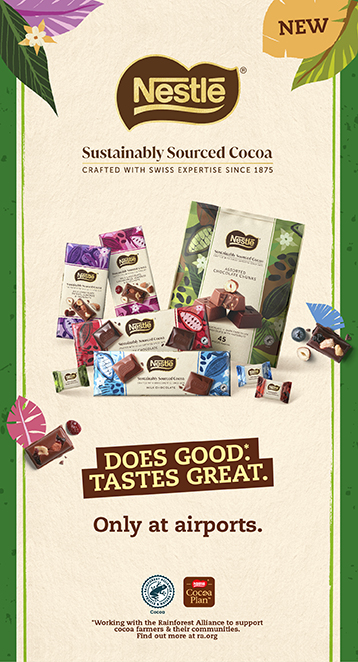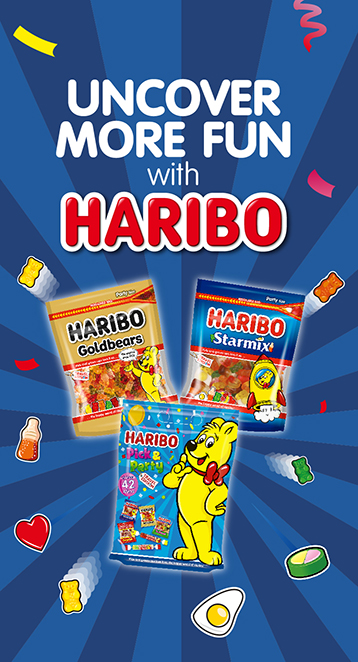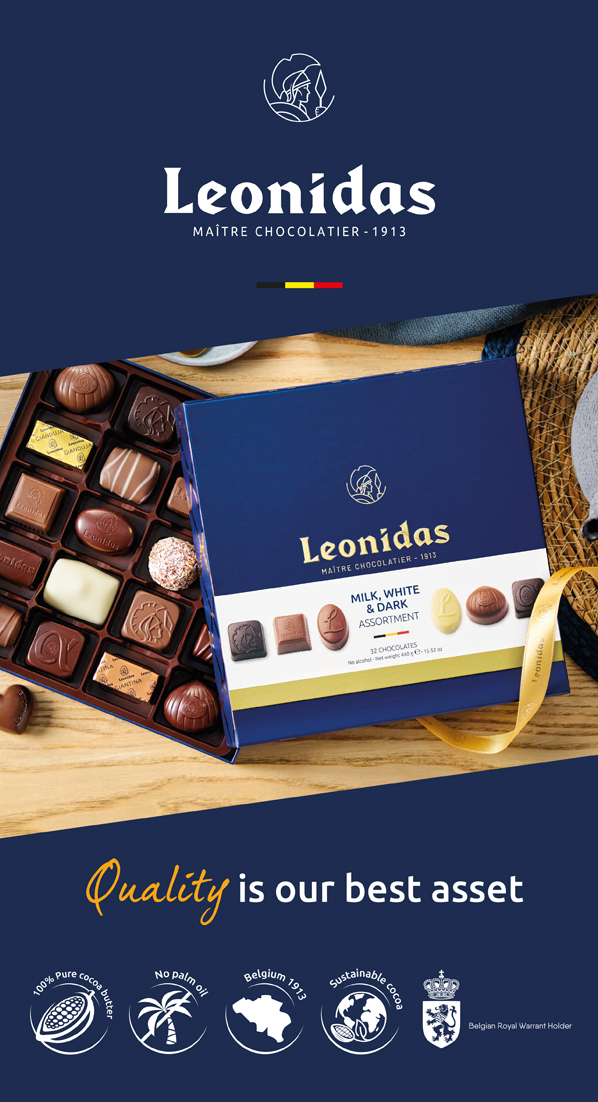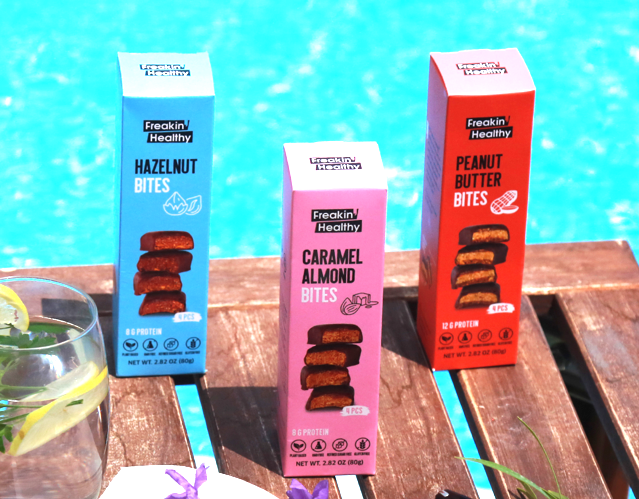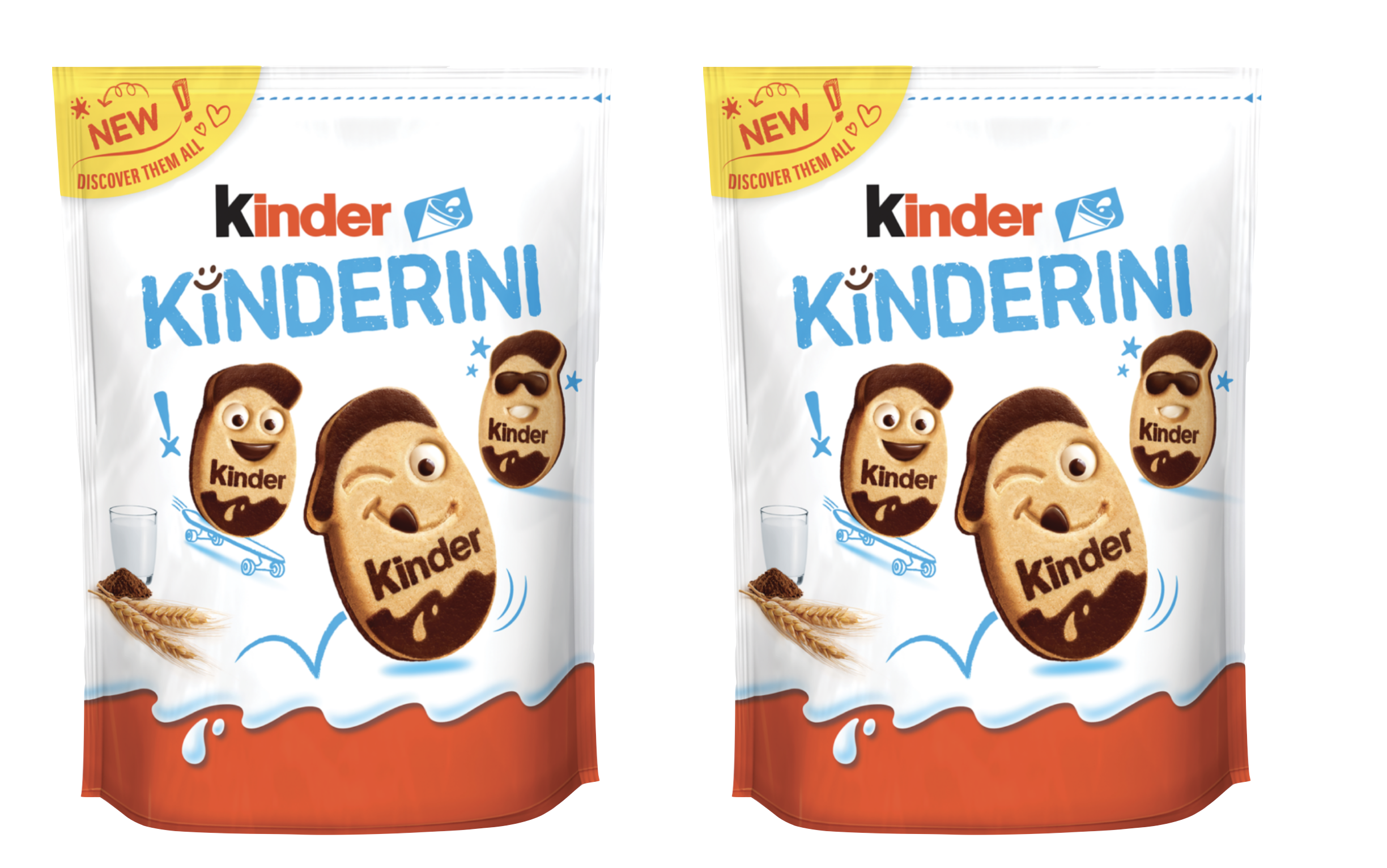
The Moodie Davitt Report brings you the latest instalment in our popular series Ten Easy Pieces*, in which we get up close and personal with leading travel retail personalities via ten snapshot questions.
Meet Mars International Travel Retail General Manager Gary Clarke, the straight-talking Australian with a passion for bringing out the best in people.
 1. Where were you born and raised?
1. Where were you born and raised?
I was born in Sydney, the youngest of nine children. It’s fair to say I didn’t get off to the best start as my father left not long after my birth, and my mother wasn’t working.
I can only now, as a parent myself, appreciate how difficult that must have been for my Mum and how lonely she must have felt in that big city. She probably didn’t have much choice but to return to the countryside, 1,000kms away, where her ancestors had settled in the early 1800s.

The area is known as Gippsland and we moved into emergency housing in a town called Yarram. People rarely know anything about Yarram but if you take a look on Wikipedia it’s described as “the regional centre of a prosperous farming district. It has a vibrant community, which remains dedicated to a strong sporting culture”.
There’s a fishing port – the area that my Mum grew up in – and a load of beaches, farms and forests. You could say I grew up in a typically Australian way; playing a lot of sports, in particular Aussie rules and cricket. I held captain positions in both sports and that gave me a sense that I could lead people.
I also loved to run and did a lot of athletics and cross country. Athletics, in particular, gave me my first idea of what’s possible with hard work and discipline. As an 11 year old I was part of a relay team that won a state championship and that was unheard of from our tiny little town.
Although we didn’t have a lot, life was pretty good as a teenager. I was playing a lot of sport, enjoying life in the country and I was doing well at school. However, the commercial reality of my existence determined that I had to leave when I turned 15.
If I wasn’t playing sport I was in the forest, or fishing, or spending time at my friend’s farm, riding motorcycles or hunting rabbits and foxes.
I had to work from a young age and I would do almost anything. Mum was a tireless worker and I would often help her mowing lawns or doing jobs for family friends. That paid for my first bicycle and often for things that I wanted to do, like school camps.
They were valuable lessons now I think back. Those, along with some simple country sayings from my Mum, would serve me well later in my business life. She would say: “If you are going to do a job, do it properly”; “If you say you are going to do it, then you have to”; “Make the most of what you have and be grateful for it”; “Manage your money carefully” and “treat others how you want to be treated”.
Although we didn’t have a lot, life was pretty good as a teenager. I was playing a lot of sport, enjoying life in the country and I was doing well at school. However, the commercial reality of my existence determined that I had to leave when I turned 15.
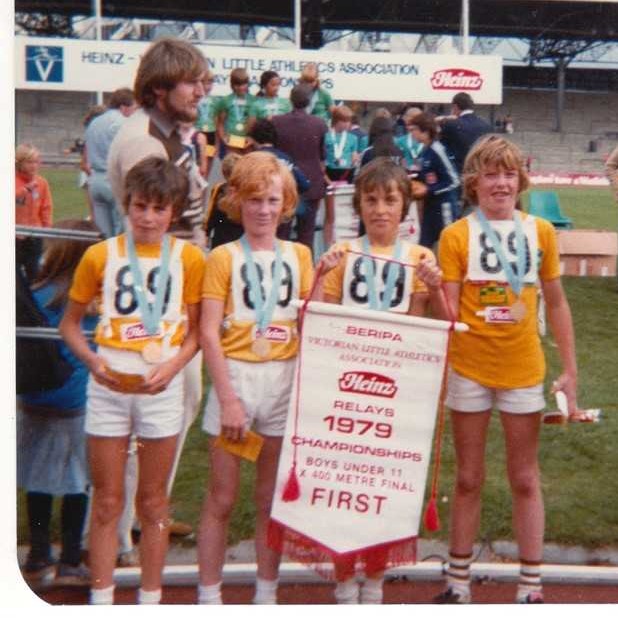
2. You were 15 and out in the workforce. What did you do?
At first I found it really hard as I wanted to study and go to university like my best friend. Instead I began an apprenticeship with the State Electricity Commission. It was a great job; I was outside every day and I picked up a lot of skills. However the dangers became evident after a near fatal accident and, literally the day I qualified, I left and moved away from Yarram, inland to the Latrobe Valley.
From the age of 19 to 30 I did a lot of different things. I started my own investment business, worked with a Greek family selling videos and hi-fi equipment and tried my luck in the industrial sector.

I started with an advertising agency, working for commission, and it was then that I realised I needed to add more skills; I knew I could generate an income, and run a business, but I needed to know more. I invested in a Distance Education course in accountancy, recording on a VHS recorder overnight and studying when I woke up.
3. And that investment led you to Mars?
Yes it did, but not immediately. I didn’t finish the certificate but I did manage to add to my self-taught fundamentals in accountancy.
Deb and I moved to Melbourne and I got involved as a partner in a start-up printing/marketing business. On reflection it was a huge risk; I ended up signing over my shares and left. It was a failure but no real damage. Then I moved into management, heading a team of 35 agents who worked purely for commission. That was a fantastic way of learning what motivates people.
Deb and I travelled during that time, a few months of ‘Overseas Experience’ in Europe. We returned home with a clear view that when we had children we would want them to experience Europe with us.
It was pretty much the lowest I could go within Mars but that position gave me an opportunity to join a blue chip business; one, as I was to learn, that valued not only what you did but how you did it.
Back in Australia, my career took another turn thanks to a cricket match. I was playing with some guys from Mars and listened to them talk about the business and its principles. I realised that a lot of what they talked about aligned with the lessons I had learned from my mother.
I applied for a job with Mars but didn’t get it through lack of Fast Moving Consumer Goods (FMCG) experience. However, I was offered a Territory Manager’s role on the other side of the country; Deb and I made a quick decision and decided we would move to Perth. It was pretty much the lowest I could go within Mars but that position gave me an opportunity to join a blue chip business; one, as I was to learn, that valued not only what you did but how you did it.
Pretty quickly I realised I could generate great value for the business and I was rewarded with more opportunities; we headed back to Melbourne and our first child, Stevie, was born.
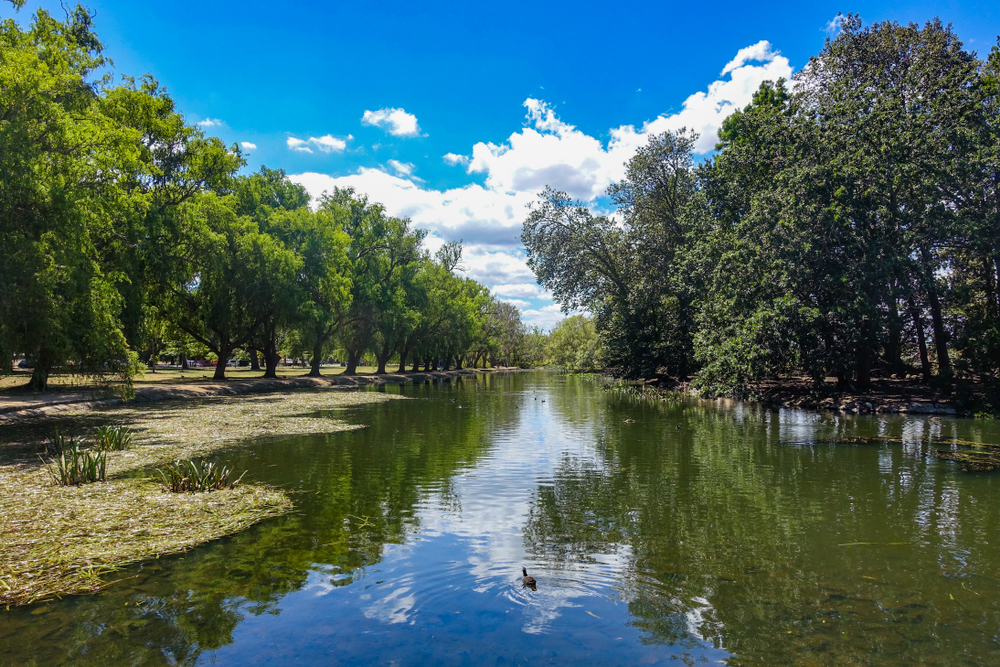
An opportunity to relocate to Ballarat – the location of the Mars head office in Australia – arose and I grabbed it. I saw the opportunity to become more involved in the broader business; it was also a great place to raise my young daughters.
That decision set my path for beginning to forge a senior leadership career. It was a changing point in my personal and professional life.
4. What were your biggest challenges, personal and professional?
We had a good life in Ballarat; a house near the lake, Melbourne just an hour away, beaches the same. It was a fantastic start for my family and provided great education. Professionally I was part of an amazing story of significantly changing the Australian business and setting it up as one of the best-performing for Mars worldwide.
Ballarat was also where my third daughter, Joie, was born and so the thought of not moving away from the area until my family had grown up was a real one.
But, consistent with how I have approached my life, I felt there was possibility to do more and there was plenty of potential to grow… only this time with my family. I started to consider an overseas assignment, the lure of international travel retail: change and a challenge.

Of course, like all expats with a family, there were a number of trade-offs to be considered. They included moving from a great community, with excellent schooling, into a farmhouse in a little village in rural Holland and the shift, for my girls, to an international school in Eindhoven. I reflected on our commitment from years ago and the life-changing experiences that Deb and I encountered when travelling and trusted that we could really give our children a great life experience.
Professionally I wanted a challenge that really stretched me both on a personal and professional front. My role in travel retail offers the freedom to operate and be entrepreneurial, and an amazing opportunity to work on the global stage.
The industry is an amazing place to develop your leadership style and really broaden your perspective. Tensions and trade-offs are continuous but the industry is resilient.
Duty free has a unique strength to connect with travellers through experiences and value that they can’t get anywhere else in the world.
5. Crystal ball gazing into the future of the confectionery category… clear or cloudy?
I believe the future is all about meeting the changing needs of the traveller. We are seeing the rise of the emerging middle class and those travelling on low-cost carriers really changing our industry.
We need to have the right portfolio to suit these changing travellers. As brand owners, it’s essential to understand this and work collaboratively with our retail partners to leverage what duty free has to offer. And that’s a unique strength to connect with travellers through experiences and value that they can’t get anywhere else in the world.

I think to do this all of the players in the category need to work mutually to lift the relevance of the offer and truly engage with the travellers to create better moments for them. The future is bright but it shouldn’t be taken for granted.
6. How has your approach to business changed over the years?
I think I’m a pretty down to earth type of person. I know my CV isn’t what you’ll usually come across at my level of management. But I like to think that, over the years, I have developed the skills to relate to people at all levels and from all different backgrounds.
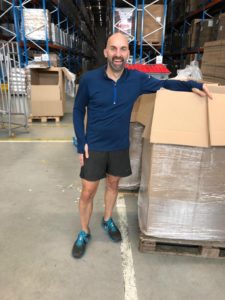
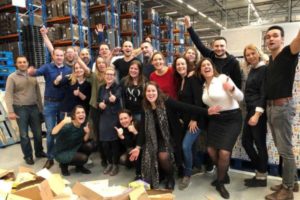
It’s all about treating everyone you encounter as you would like to be treated yourself, no matter the circumstances. I’ve managed businesses from small one-man shows to blue chip on an international stage and find that this formula is consistent across every situation.
I think that knowledge and curiosity are essential as is an optimistic approach regarding the possibility and potential of people.
Over the years I have also been passionate about the importance of development and seizing opportunities as they come. That has helped me get clarity about what’s important to be at your best.
I really believe in building and managing your physical and spiritual energy. Health is a key and my family is an important part of who I am. I think that knowledge and curiosity are essential as is an optimistic approach regarding the possibility and potential of people. I have learned that keeping these in balance allows me to create value for the business.
On long flights I often find myself wondering how the hell I got here. My early life in a very small town living with Mum, and not having much, to running international travel retail for Mars in Europe is a great journey. And it’s far from over.
This role is providing me a great opportunity to educate Mars about the industry and what its potential is. At the same time I can educate the industry about Mars’ approach to business and its principles. The future is going to require us all to look at how we balance our relationships with our people, our communities, and the planet that we live in. This is an incredibly exciting opportunity and one that gives me great energy.
I consider myself incredibly fortunate to have this opportunity at this time in the industry and really enjoy the challenge.
On long flights I often find myself wondering how the hell I got here. My early life in a very small town living with Mum, and not having much, to running international travel retail for Mars in Europe is a great journey. And it’s far from over.
7. Can you explain the Economics of Mutuality, which you spoke passionately about at The Trinity Forum in Shanghai last year?
Working in Australia I had exposure to John Mars [grandson of Frank C. Mars, who founded the company]. In the twilight of his career he was quite philosophical about the future. He was concerned about the sustainability of the business and asked the question of how much profit is enough profit.
It provokes the thought that we must work collectively to broaden, deepen and hasten the work of transforming businesses into being a force for good.
Later in my career I was to learn that he challenged Mars Chief Economist Bruno Roche to find the answer. Roche partnered with Oxford University and others to develop the ‘Economics of Mutuality’ which really challenges the thinking of business.
It provokes the thought that we must work collectively to broaden, deepen and hasten the work of transforming businesses into being a force for good.
I was fortunate enough to be invited to an amazing week in Oxford to immerse myself in this topic and truly learn what mutuality in business means and how you might use it to deliver a more sustainable business model.
I’m currently working with the EOM team on ways to bring it to the industry and, as you say, kicked that off with a speech at last year’s Trinity Forum in Shanghai.
It’s really inspiring and I am looking forward to see what we can do in the future.
8. Four people who have impacted your life and why?
One would have to be my best friend and fellow Australian, Stuart Wilson. He is an incredibly talented freelance cameraman/editor/story teller who, through his skills, can engage and move people.
Second on my list is David Street, who I worked with as the Mars National Sales Manager – Field Operations and is now General Manager New Business for Blueprint Group Australia. He is one of the best people managers I have worked with. He taught me what a privilege working with people can be.
Michael Ryan was General Manager of Mars Chocolate Australia and is now Mars President Multisales Markets. He’s a boss who truly believed in me. He supported me to take risks and explore what is possible.
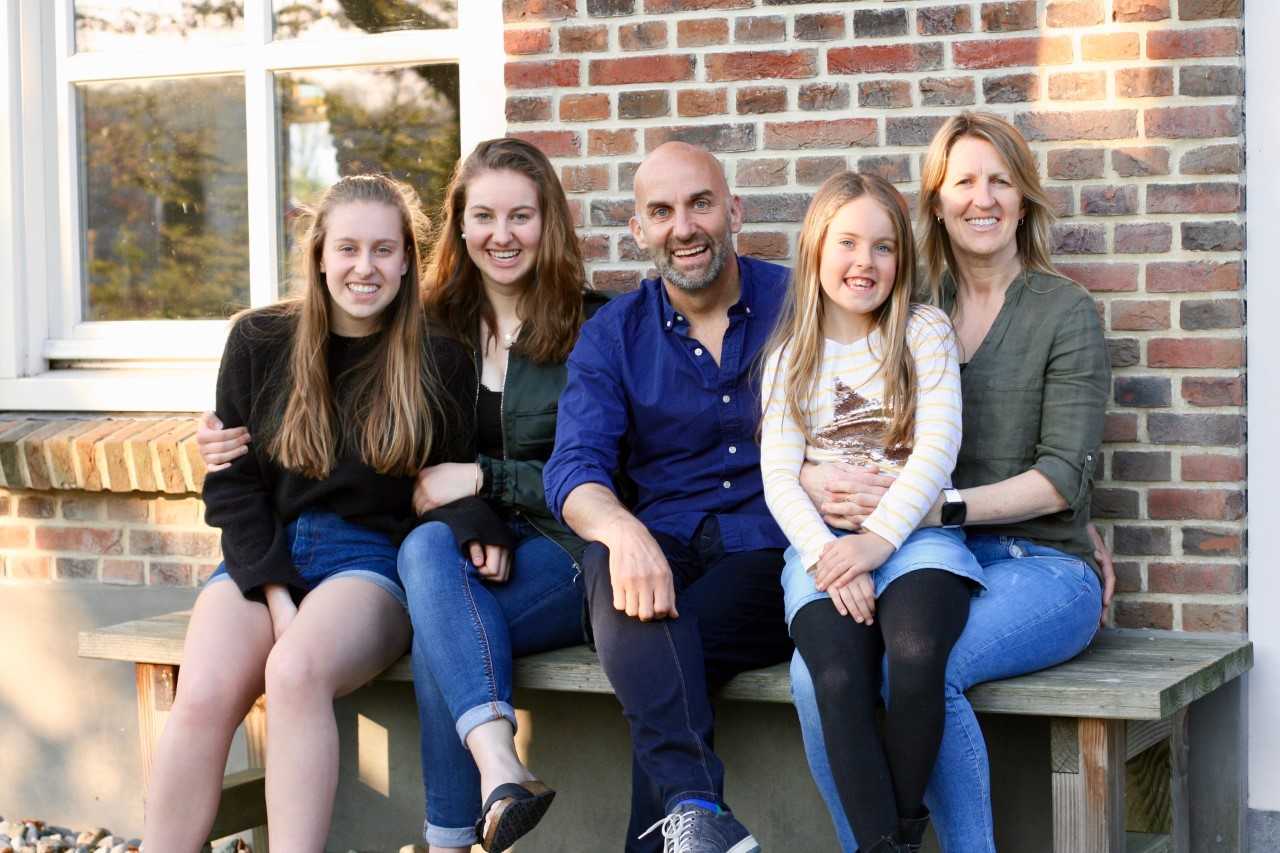
And I will cheat a little here to add Deb and my daughters. They have taught me the power of trust, compassion, empathy and, of course, love.
9. Wind down time… how do you relax?
I work hard on managing my spiritual, mental, emotional and physical energy. It really is about being mindful and knowing yourself and what it takes to be at your best.
Sports still plays an important part of my life and my health is really important. I run (fun runs mainly and half-marathons now); I cycle (perfect now that I am in Holland) and I go to the gym.
I sing a little and like to play the guitar. I’m self-taught and I play rather badly but thoroughly enjoy it. I’m not so sure how it is for those listening to me though.
I enjoy reading but I guess I am a bit of a grazer; I am interested in a lot of things. I read and have loads of books on different subjects. I have a huge thirst for knowledge. My recent readings are Factfulness by Hans Rosling, Finding Ultra by Rich Roll and Completing Capitalism: Heal Business to Heal the World by Bruno Roche and Jay Jakub.
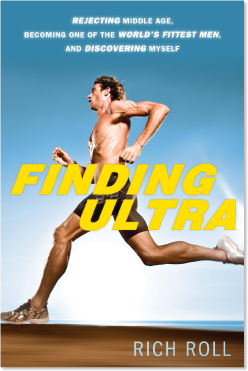
I look forward to holidays with the girls as part of recharging. The essence of coming over here to Europe wasn’t just my career; a big part of the idea was giving my girls the opportunity to experience Europe. We’ve already enjoyed some awesome travels so far: Greece on a yacht for a week; a tour through Italy focused on history; winter and summer holidays in Austria for skiing and adventure sports and a very special visit to see Santa Claus in Rovaniemi, just to name a few. Being in the Netherlands really makes everything super easy to get to.
10. And the Gary Clarke approach to the future?
My work is demanding; I travel a lot and there are a lot of pressures and complexity to navigate. The principles of early life in the country of having an appreciation for the people around you, the community that you connect with, and the planet that you are part of, continue to serve me well.
My career at Mars has taught me that principles are important. It’s not just what you deliver but how. I believe that through people anything is possible.
I don’t think that my Mum, who is 94 now, would understand what it means for me to be implementing them in an international business but I do know that she is pleased that she was able to pass something on to me that has helped me with my journey.
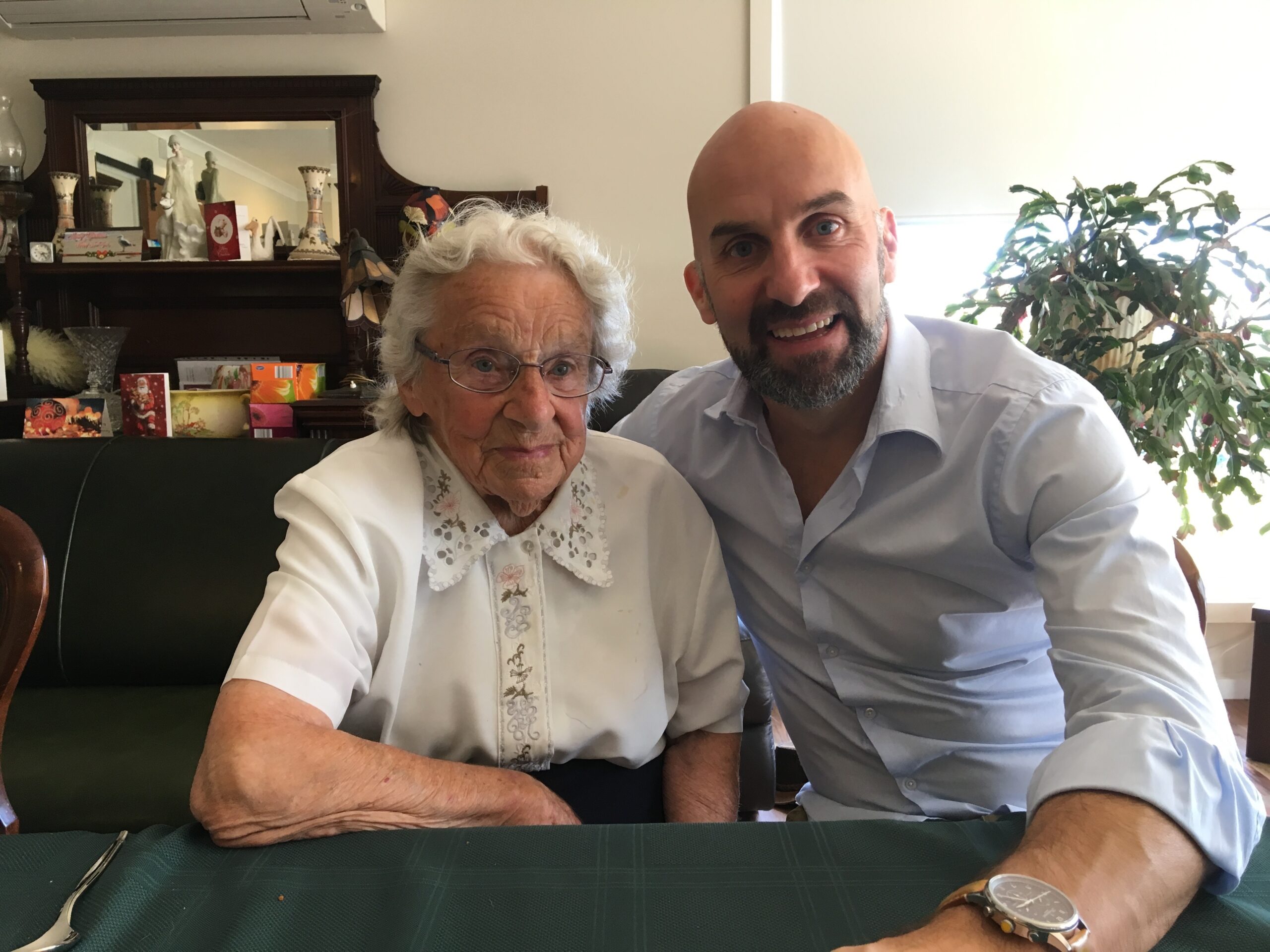
Looking forward I think it’s a great time to be in the business world as a leader. The world around us is changing rapidly and I think that we, as leaders, need to work out how to adapt to the new rules of the game. If we can collectively set our sights on making business a force for good then it will be ultimately good for business and for the people communities and planet that we operate in.
My career at Mars has taught me that principles are important. It’s not just what you deliver but how. I believe that through people anything is possible.
*PREVIOUSLY FEATURED TEN EASY PIECES PERSONALITIES INCLUDE:
Meet Maui Jim Senior Duty Free Sales Director Giles Marks
Meet Duty Free Development Consulting Founder and CEO David Dayan
Meet Victorinox Head of Travel Retail Thomas Bodenmann
Meet Duty Free Global Founder Barry Geoghegan
Meet Swiss Eyewear Group Business Development and Travel Retail Director Rebecca Harwood Lincoln




